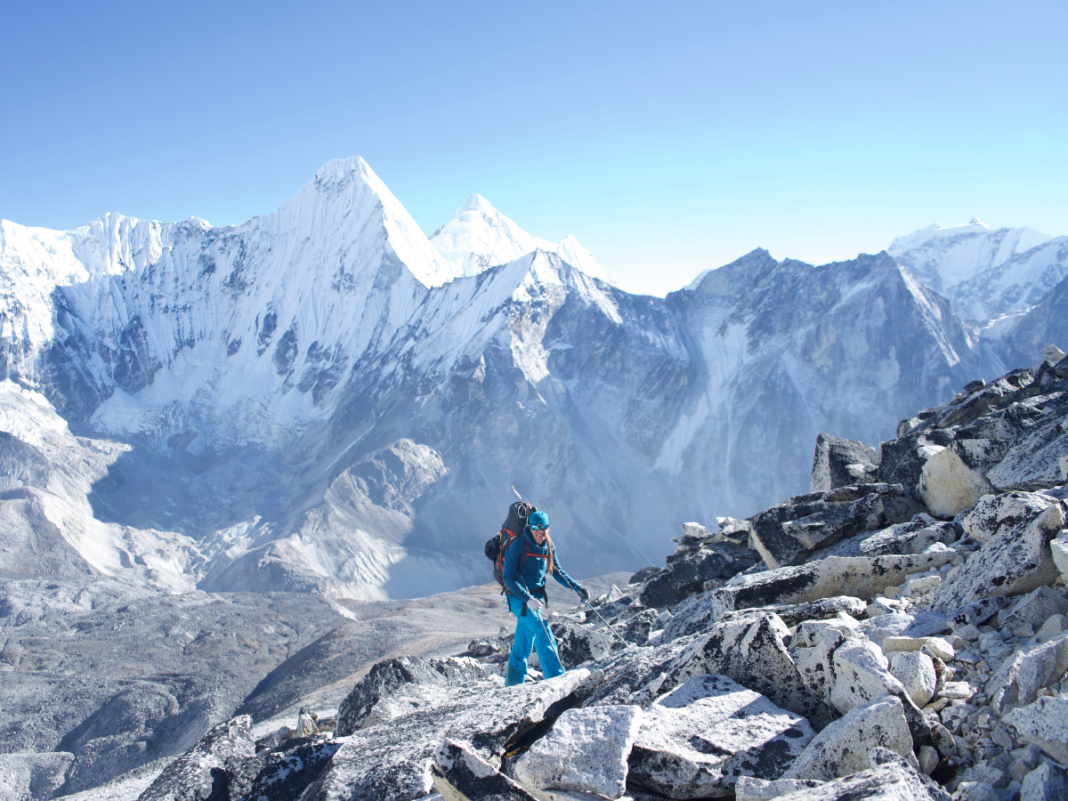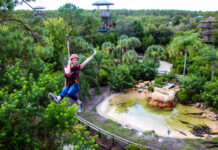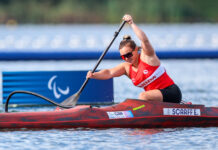The world’s 14 tallest peaks range between 8,012 and 8,848 metres but are somehow no comparison to the mountains Jill Wheatley has already conquered. What started out as a normal Wednesday for a sports science and physical education teacher, turned into a profound shift in Wheatley’s life course.
September 3, 2014 would be the final day she would experience full sight and yet, be the beginning of her pursuit for better vision.
It was a miserable, grey day in Bavaria, Germany when Wheatley brought her grade 10 students onto the baseball diamond to put the skills they had found in their introductory lessons to the test—this time using the bat.
The events that followed happened seemingly in slow motion—a stark contrast from the reality of the baseball travelling approximately 90 kilometres an hour that made direct contact with the side of Wheatley’s head. With her eye closing, swelling to the size of a baseball, Wheatley knew her students needed to act quickly. She was rushed to the local hospital.
“I knew from the instant I got hit that something was seriously wrong,” says Wheatley. “Yet, the ER medical team told me otherwise so I told myself to toughen up.”
Having passed the coherence test, Wheatley was sent home with a black eye. Although her head was pounding and the nausea had completely averted her appetite, Wheatley was sure she could push through with her plans of competing in the World Long Distance Duathlon Championships in Switzerland that weekend.
Her hope was quickly dashed and Switzerland was replaced with a second trip to the hospital. Wheatley was transferred to a neurotrauma hospital where it was determined that her black eye was in fact a fractured skull paired with brain bleeding and swelling. Months in the hospital soon became inevitable.
For the Thunder Bay native, a life without movement, especially one in a fluorescent hospital room, felt completely foreign. Skiing, cycling, trail running, snowshoeing and spending hours outdoors became a part of Wheatley’s identity early on in life—but now had been stripped and replaced with one-on-one care, innumerable tests, therapy and rehabilitation.
“Losing 70 per cent of my eyesight, I felt like life was not worth living as so much of this lifestyle was lost,” says Wheatley. “Or so I thought.”
“I was stuck and did not believe life with a disability was worth fighting for.”
After spending 26 dark months in seven hospitals spanning three countries, Wheatley started to heal from the subsequent health complications of her trauma and was ready to meet her new self.
The mountains just beyond her window at the recovery centre in Denver, Colorado, seemed to have all the answers. And Wheatley was eager to pursue them.
“I was drawn to being alone, away from society,” says Wheatley. “I spent more than two years [in and out of hospitals], much of which was one-on-one care where I was never alone. I thought that time alone with Mother Nature had the potential to lead to inspiring light.”
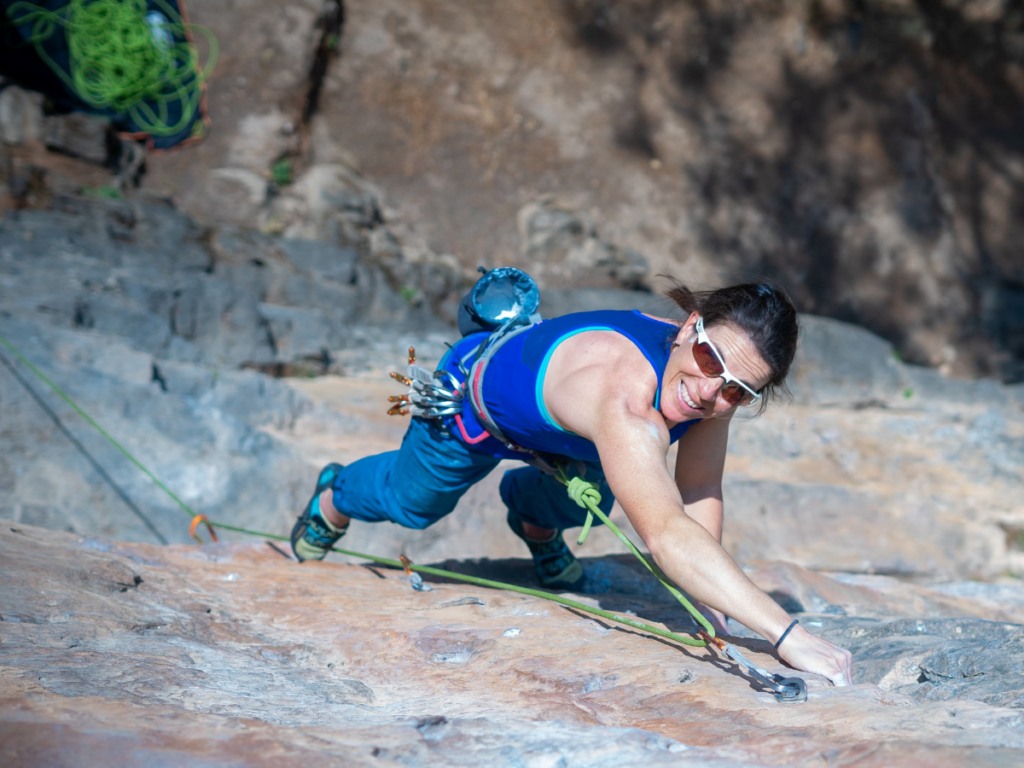
For a year, Wheatley travelled throughout a variety of massifs starting in Europe and landing in the Himalayas, hoping to avoid the stares and stigma of society and instead, confront herself. With the limitations of a wheelchair not far behind her, Wheatley soon found herself running the Annapurna Circuit, Manaslu Mountain Trail Race and throughout the shadows of Everest.
With new confidence in her ability and renewed optimism, altitude seemed like a natural progression. After climbing several 6,000 metre peaks, she took on Manaslu sitting at 8,163 metres.
Embracing the life she nearly lost is a continuous journey for Wheatley. “Accepting the physical change has been a mountain. I appear different from what society tells us is normal,” she says. “It has been extremely difficult to accept.”
Alongside Imagine Nepal, a local Nepali expedition team lead by Mingma Gyalje Sherpa, Wheatley fearlessly conquers heights she, at one point, thought were impossible.
“I climb as any full-sighted climber,” says Wheatley, who can only see out of the bottom of her left eye. “Depth perception is created by both eyes working together. Because I do not have that, I have had to learn to adapt and use a variety of cues to help measure depth and distance.”
Now with a base in Kathmandu, Nepal, Wheatley is in the midst of climbing her remaining eight summits, including Everest, with hopes of conquering the world’s 14 highest mountains by the end of 2023—an achievement that can be claimed by less than 50 mountaineers.
“If anyone is experiencing darkness and learns of how I was in the darkest of crevasses to the highest peaks in the world, I hope they may find light and hope for better days,” says Wheatley. “We cannot always choose how life plays out, but we can choose our response.”
Follow along with Jill Wheatley’s journey on her personal blog, mountainsofmymind.com.
Photography by Savannah Cummins
You may also like: Athletes with IMPACT
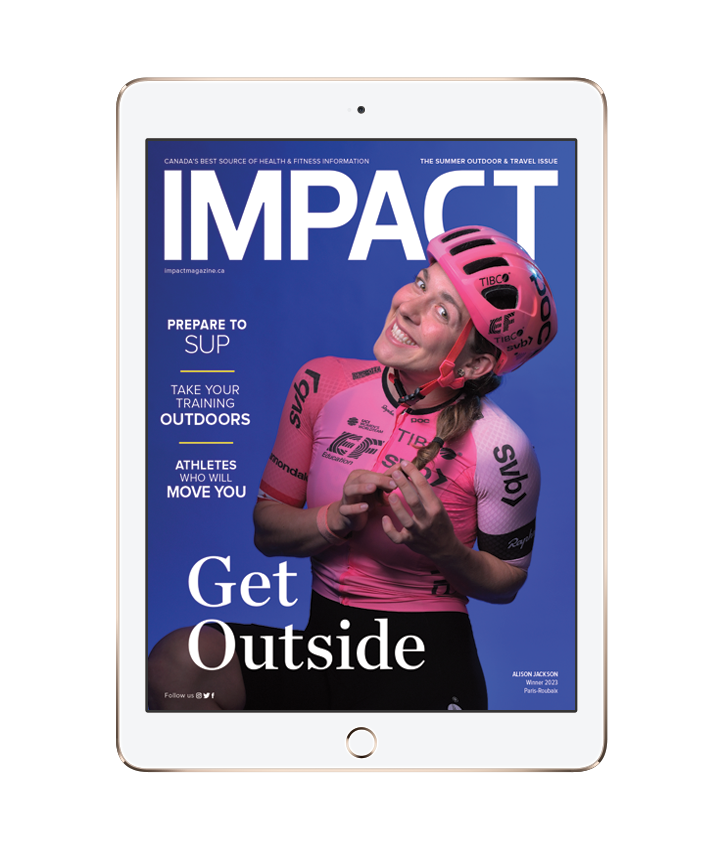
Read This Story in Our 2023 Summer Outdoor & Travel Issue
Featuring Alison Jackson, Canadian cyclist and only North American male or female to win the famed Paris Roubaix. Travel the country’s most stunning hot spots by campervan. Become a better trail running by improving your ascents and descents—plus, train outdoors with Canada’s Top Fitness Trainers. Enjoy plant-based summer recipes and so much more.


